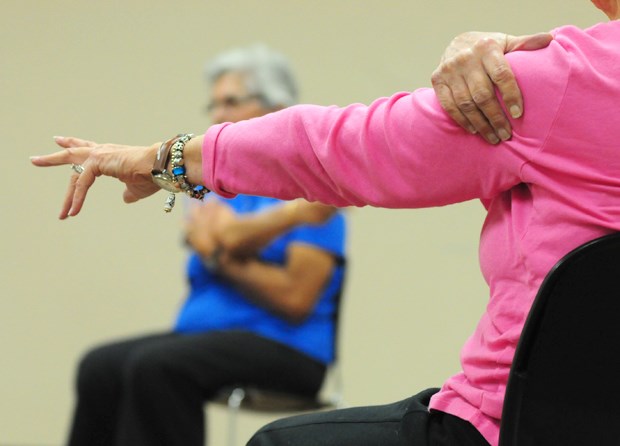Last November, a respite care centre proposal that would have provided 18 spaces for seniors and their caregivers on the North Shore was denied by the new North Vancouver district council.
In addition, a proposal for 80 housing spaces was rejected. It is clear, in this housing crisis, especially for seniors, that the rejection of 80 low-market spaces is unfortunate.
In particular, rejecting the respite care centre is doubly unfortunate as the need for respite spaces is essential to the well-being of our caregivers and their loved ones. It is my understanding that there is still a community desire to support a respite care centre.
In this article I will focus on the need for respite care and leave the discussion about seniors housing for another time.
Many of us at some point will likely find ourselves becoming a caregiver for a family member or friend. We might find ourselves providing care to a spouse, parent, or friend with memory loss, dementia or complex heath care issues.
North Shore Community Resources Society defines a caregiver as a person who provides emotional or practical support for an adult family member or friend. As the population ages, the number of people who will require some level of care with daily living will increase dramatically especially as the seniors population increases.
At present in Canada 20 per cent of Canadians over the age of 45 are providing care to a senior. In an August 2017 report, Caregivers in Distress: A Growing Problem, B.C. seniors advocate Isobel Mackenzie stated: “Unpaid caregivers are a vital, often unrecognized yet critical piece in ensuring the stability of our health-care system.”
Mackenzie also stated: “there are approximately one million unpaid caregivers in the province whose paid value is estimated to be $3.5 billion. The importance of maximizing supports can’t be underestimated when we consider costly alternatives such as residential care or hospital stays.”
Most of the time caregivers spend is unpaid and can take an enormous toll on them physically and mentally. Caregiving can lead to increased stress, sleeplessness, social isolation, anxiety, and when sustained, depression. Many experience unrealistic expectations of their ability to cope, lack family supports, and experience challenges navigating the health-care system. Many also have trouble finding appropriate resources, and experience guilt and worry about making the right decisions for their loved ones. A remedy for caregivers is having a break from their commitment.
Mackenzie notes: “Having a break for even a few hours can make a huge difference in the lives of caregivers who are feeling exhausted and overwhelmed. For some caregivers, time alone to refocus and recharge is something very precious and we need to recognize that it can make the difference between feeling strong enough to carry on with caring commitments, or giving up entirely.”
Respite care can provide the much needed break a caregiver needs, as a person you care for can receive care at home, during a short stay at an overnight centre or at an adult day centre.
Responding to a critical need in 2002, Care BC opened the family respite centre in Vancouver. According to Inge Schamborzki, executive director of Care BC: “The mission of the centre is to provide compassionate, supportive respite care to seniors and their caregivers – promoting much needed rest, relief, renewal – so they can continue to live independently in their own homes and communities for as long as possible.” She further states that: “Since its inception the FRC has helped and supported thousands of caregivers.”
Again responding to a critical need, Care BC has proposed a new centre for the North Shore. The new centre would have all the amenities of the current respite centre in Vancouver. The centre will feature an expanded group activity area, a dining room, an arts and crafts centre, as well as open spaces for mobility and daily exercises. There will be an overnight respite wing including up to 18 private bedrooms with in-suite bathrooms.
Guests from both programs will be able to move freely between the wings to jointly participate in programs and activities.
Care BC has the experience and proven track record to get the centre built to serve North Shore residents. As Schamborzki says, “Care BC’s model of caring offers preventative and supportive health and social services to enable seniors, caregivers and others at risk of isolation to remain in the comfort of their own homes and communities.”
I hope that the proposed respite care centre becomes a reality in the very near future.
Margaret Coates is the co-ordinator of Lionsview Seniors’ Planning Society. She has lived on the North Shore for 47 years and has worked for and with seniors for over 20 of those years. Ideas for future columns are welcome. Email to lions_view@telus.net



